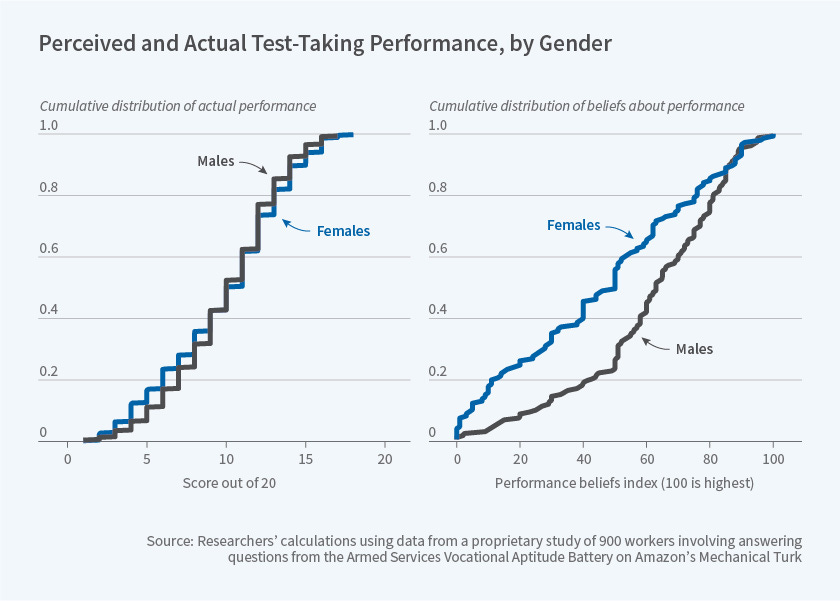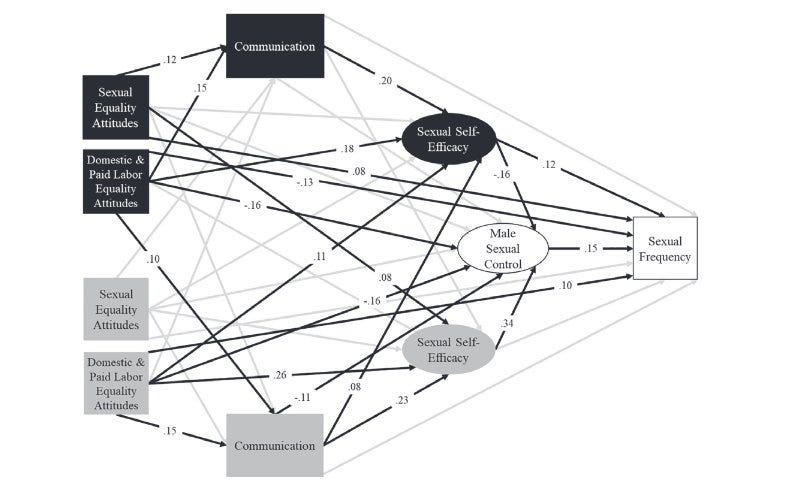The Man Sloth Diaries
Do you enforce and enact traditional sexual scripts of male sexual control to get your rocks off? Okaaay… And how’s that working out for you?
Happy Friday!
And welcome everyone to edition 315.
For those of you new around these parts — hello! My name is David and I’m a writer, outdoor instructor and cyclist-at-large with Thighs of Steel.
I use this newsletter to write stories that help you and me understand the world a little better: like sneezing, the importance of empowering Stuff and the death of an anarchist.
Firstly: THANK YOU for such a positive reaction to last week’s leviathan. It seems like Man Sloth Mode triggered quite a few constructive conversations that I hope have helped us all understand each other a little better.
At least one of those conversations took place between me and a sweaty stranger in a sweaty sauna. But more on that (drum roll please) in…
The Man Sloth Diaries
Psst: you can read this story online instead of in your inbox
Today I’m going to build on everything that I wrote last week, encorporating as many of your wonderful contributions as I can.
In fact, last Saturday, I got so excited by your responses that I had to make a load of changes to the original article, so please go and read that if you haven’t already.
Then come back for more diaries.
What’s In A Name: Man Sloth Mode? Secondary Carer Sloth Mode? Drive Care / Take Care?
One of the things that surprised me about the comments on last week’s email was how many women said that they had noticed themselves slipping into man sloth mode — to the point where a friend asked if they could drop the ‘man’ bit altogether.
Of course you can — it’s yours!
Before delving into the terminology, it’s worth saying that I don’t necessarily believe these women when they say they go into what I called man sloth mode.
I’m well aware that women habitually underestimate their performance compared to men.

So, while I accept that women (being human) can and do go into some sort of sloth mode, I don’t think it’s anywhere near as common and nowhere near as acute as the male strand that I discussed last week.
Aaaaanyway, that aside, what was particularly interesting was under what circumstances people told me they go into sloth mode.
Just as men tend to sloth mode when a woman is there to take care of all the life admin, so it seems that adults of all genders can easily slip into sloth mode when they go back to their parents’ for the weekend.
Sound familiar?
Having just spent a week with family, I can relate. But I’m getting better at noticing man sloth mode and acting before it impacts too badly on other people. (And I still think you’re overpraising when I fill the dishwasher, mum 😂)
Fascinatingly, I also got an email from a friend who is part of a two-mum family. They described how one person, who they call the primary carer, often carries the ‘emotional and functional weight’ for everyone in the family unit.
‘Traditionally,’ my friend wrote, ‘it’s the Dad that slips into Man Sloth Mode, but take out those genders and you’re left with secondary carer sloth mode.’
My friend also made a brilliant distinction between what she called ‘drive care’ and ‘take care’ modes — and how she and her partner have bounced back and forth between the two as they’ve matured.
If I’ve understood correctly:
Drive care = someone who sees and actively straightens out the chaos of life: a person who cares
Take care = someone who would rather passively adapt themselves to the chaos of life: a person who receives or benefits from care
I love how this distinction acknowledges that we can find ourselves more or less in one or the other mode at different times and in different contexts in our lives.
As children, naturally, we are take carers. As parents, naturally, we are drive carers.
Within the parental bubble, it is common for one or other of the partners to take the more active primary care role. And I think the same is true for relationships without children: a primary carer emerges. Which sucks.
So: what do you think about dropping the man from man sloth mode? What about my friend’s secondary carer sloth mode and the drive and take care distinction?
Oooh — talking of inspired new terminology. How about this, from the irrepressible M.C.:
Man sloth dodging (noun, verb): Man sloth dodging is when the female partner of one man makes direct contact with the female partner of another man in order to guarantee the successful and timely arrangement of social plans. 🤣
So good. More please!
Utimately, the point here is to develop language that facilitates conversations. Have we done that? Maybe. Can we go further? Definitely.
Psychological Fragility And The Male Response
The response to last week’s newsletter was genuinely wonderful. I loved getting screenshots of when you shared it with friends. 😍
But I couldn’t help noticing that the strongest responses were from women. Largely in the form of: YES, THANK YOU FOR NOTICING.
I feel a bit of fraud, given that ninety percent of the ideas behind man sloth mode were smuggled away from conversations I’ve had with women.
Nonetheless, it’s gratifying to hear that I nailed one of the purposes of the article: to really hear and validate what other people are saying.
Ultimately, however, I wrote this whole thing for men — to help myself and other males take responsibility for the direction of our lives and our relationships — so it’s their reaction and response that I’m most worried about.
The tricky thing here is that men tend to be, in the words of one friend I spoke to last week, ‘psychologically fragile’. After all, that’s why primary carers feel they have to overpraise their male partners and colleagues for the slightest cooperative behaviour.
Maybe it’s just me, but I feel like we men don’t tend to deal well with our flaws being pointed out, nor with other people providing us with a solution that we haven't come up with by ourselves (and subsequently been overpraised for our cleverness).
I have essentially dodged this problem by coming up with a solution (man sloth mode) for which I have been acknowledged and praised (again: thank you). This assuages my ego and paves the way for me to be a bit better.
But I want to find an accessible way for everyone to talk about these problems.
A female friend of mine told me that she’d love to send my article to a bunch of the men in her life, but was a little nervous about how it might be received, as a ‘personal slight’ or even ‘man-hating’.
So how do we reach men?
Do you know, I think the answer might be…
The Sweaty Stranger In The Sweaty Sauna
Bear with me.
Last weekend, I shared a sauna with a lovely chap called Ren.
We chatted about this and that: how awkward a sweaty silence can be in a sauna, how nice it is to chat to strangers, even if they’re sweaty, stories of past sweaty sauna escapades, and so on.
Then, because we were two sweaty men sitting on a sweaty bench in eighty degree heat, I decided to broach the topic of last week’s newsletter.
This was the first time I’d chatted to a total stranger about these ideas and I was unsure what to expect from a half-naked sweaty man in his mid-fifties.
Reader, Ren practically slipped off his bench with enthusiasm.
Ren’s father had died when he was very young, so was brought up by his mother. His mother, as it happened, was a feminist and determined to make sure that her son did his share of the housework.
Ren cleaned the toilets, did the dishes and the mopping, as well as the cooking. By the time he was an adult, Ren could actually function as, well, as an adult.
He only realised this was weird when he went to university and all his peers were, to put it bluntly, slobs.
Now happily married with two kids, Ren boasts that he does seventy percent of the housework at home, simply because, having started at such a young age, he’s better at it than his wife.
Ren is living, breathing, sweating proof that boys can learn this stuff, if only we teach them.
‘Kids,’ Ren tells me, ‘pick up on your actions, not your words.’
‘You think you’re doing your kid a favour by not making them do the washing up, but you’re not,’ Ren says, mopping his brow. ‘You’re only saving up problems for them later in life.’
YES.
Boys need adult householding skills not only for the bloody obvious reasons like hygeine and diet, but also for the sake of their adult relationships.
Ren was taken aback when he got to university and realised that all the other young men were slobs, but he was delighted to find that his domestic talents were valuable, attractive — sexy even.
Man Sloth Mode ≠ Sexy
Guys: science tells us that men who do the dishes have more sex.
Actually, there’s nuance here and the nuance starts badly.
‘Traditional’ gender conventions have actually been found to increase the amount of sex had by heterosexual couples.
Booooo.
The explanation for this is that traditional ‘sexual scripts’ of ‘male sexual control’ privilege male sexual desire and men, basically, want to have loads of sex. So that’s what happens.
But, as the adults among you have probably noticed by now, there’s a lot more to our ‘sexual scripts’ than this.
The interlinked variables that go into good sex were unpicked in a 2019 study by Daniel L. Carlson of the University of Utah and Brian Soller at the University of New Mexico.
Here’s a fun picture of what they found:

So, yes: more egalitarian attitudes to domestic and paid labour leads to a reduction in sexual frequency, through the mechanism of male sexual control.
As I said: boooooo.
But, if you study the model closely, you can see that male sexual control comes at a cost in communication. Weird. The more the male is in command of the sexual situation, the less likely they are to communicate with their partner.
Communication was measured, quite simply, using the following question:
When you have had a particularly difficult or bad day at work or in your daily activities, what is the percent chance that you will tell [PARTNER] about what is going on?
The more egalitarian each partner’s attitude towards work, the more likely they were to report a high percentage and actually discuss their problems, together. Honey, how was your day?
That sounds like a nice thing to have in a relationship. But it’s got nothing to do with sex — or has it? Yes.
Carlson and Soller found that, with higher scores for communication, came higher scores of ‘sexual self-efficacy’ — for both male and female. The more men and women talk to each other, the more sexually self-efficacious they become.
Sexual self-efficacy is sexual empowerment. You can play along at home by (strongly) agreeing or (strongly) disagreeing with these statements:
If my sexual activity is not satisfying, there is little I can do to improve the situation.
I feel that it is difficult to get my [PARTNER] to do what makes me feel good during sex.
If our birth control choice is not satisfactory, there is little I can do to improve the situation.
Gross, huh?
Now here’s the clever part: as female sexual self-efficacy rises, so does sexual frequency for everyone.
Et voilá!
➡️ Egalitarian attitudes towards domestic and paid labour
➡️ Better partner communication between male and female
➡️ Higher women’s sexual self-efficacy
➡️ Higher sexual frequency 🔛
But wait — there’s more!
In a 2015 study of first-time parents (a role that is heavy on household labour), researchers found that more equal division of labour (presumably excluding the actual birth labour) led to greater sexual satisfaction for mothers and greater sense of romance for fathers. Aww…
Frankly, nothing I’ve said here should come as a surprise. Tired, overworked, annoyed women are unlikely to find a sloth man sexually attractive or, for that matter, have the energy or even the free time (which is, incidentally, gendered) for sex.
And yet, at the risk of slapping you in the face with stating-the-bleeding-obvious research one too many times…
In 2017 Swedish researchers found evidence that relationships where there is an unequal division of domestic labour, combined with a general sense of entitlement among men, are — BREAKING NEWS — liable to end in a breakup.
Right. That’s enough now.
Are you a man? Do you enforce and enact traditional sexual scripts of male sexual control to get your rocks off? Okaaay… And how’s that working out for you?
End On A Positive
So what now?
Well, besides a little idea I have for setting up a sweaty sauna men’s group, now I go for a quick walk and then I go to bed.
But before I disappear, one of the most thoughtful responses I got to last week’s email included a ‘not yet fully-formed thought’ about the role of positive self talk in man sloth mode.
My email last week might have made it sound like there was a lot of work to do. And there is. But it’s important to focus on the positive and acknowledge when we are doing our best.
The good news is that every moment we live between now and our death is another moment to do our best. So let’s not beat ourselves up when we slip-slide; let’s just keep on noticing when we do.
I will finish now by repeating my four point, work-in-progress strategy to draw ourselves out of whatever we call this sloth mode of being:
Notice yourself slipping into man sloth mode. If you’re not sure when this happens, look closely at the symptoms listed at the top of my original article — and remember that there are two strains of the disease (social and work)
Call yourself out publicly and explain what’s going on (without being boring or attention seeking). At first, acknowledging man sloth mode out loud will really help, but the ultimate goal is to effortlessly skip from stage one directly to stage three. (Who knows: stage one might one day miraculously vanish altogether…)
Seize the initiative. Take positive action to drive yourself out of man sloth mode. If you genuinely can’t think of anything to do, simply ask how you can help and listen to the answer. WARNING: If you find the other person instinctively micro-managing your contribution, don’t get annoyed. Remember that they might well be used to dealing with man sloths as if they were children. Politely request that they step back: you’ve got this.
If you discovered in stage three a pretty basic life skill that you couldn’t do without a lot of help, go onto the internet and learn how it’s done properly. Do not waste other people’s time: they are not your personal life trainer. If you regularly find yourself unable to think of helpful things to do, then spend more time observing the things that other people do to be helpful. Copy them.
~
Huge, huge thanks to everyone who responded to last week’s article and all the conversations that have contributed to this one. Please share your experiences and let’s keep thinking and acting on this!
Phew! Well done for reading all the way down to bottom.
New readers: it’s so great to have you here. You should know that I don’t always (or even often) write about the shortcomings of the male education.
Sometimes I write about trees, like this one, a cork oak stretching out below the battlements of Arundel Castle:
I once wandered through a fairy tale cork forest in northern Tunisia and I’ve never forgotten its wondrous spongy understorey. Like: if nature did soft play. Which I suppose it does.
I hope you get to soft play with nature this weekend. Until next week, my friends.
Big love,
dc:


